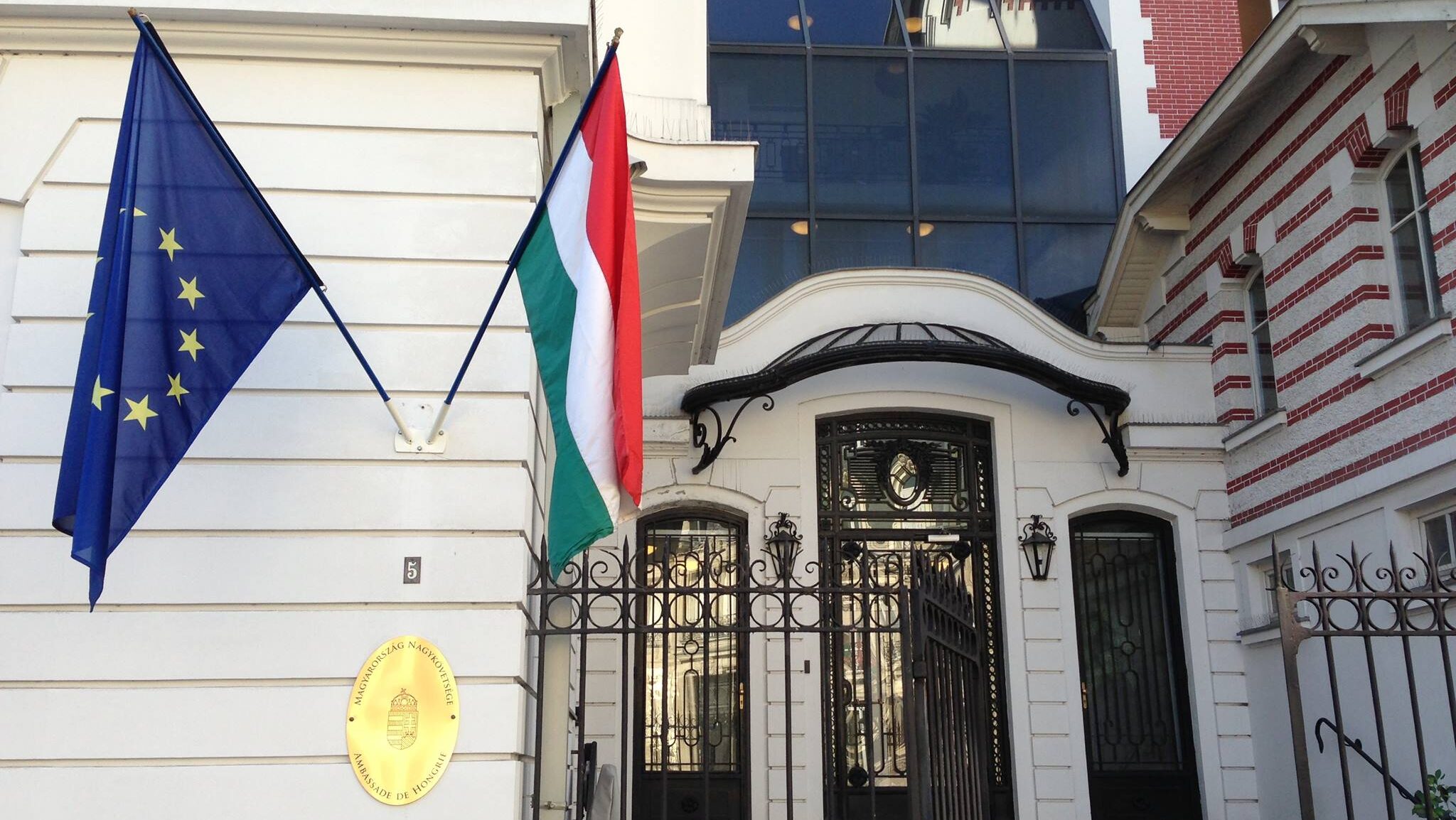A bomb threat was made against Hungary’s embassy in Paris on Saturday, 14 December. Hungarian Minister for Foreign Affairs and Trade Péter Szijjártó reported the incident on Facebook, stating that French authorities had conducted a search of the building using bomb-sniffing dogs.
‘Our colleagues at the mission received a death threat via email,’ Szijjártó explained. He added that the email included a photograph of a homemade explosive device.
‘According to current information, the email appears to have originated from an address linked to a neighbouring country. Hungarian intelligence services are already investigating the matter to ensure that our diplomats can continue their work safely during this particularly challenging period,’ the minister stated.
Szijjártó Péter
Párizsi nagykövetségünket ezekben a percekben kutatják át a francia hatóságok két bombakereső kutya bevonásával, miután életveszélyes fenyegetést kaptak a képviseleten dolgozó kollégáink egy email…
While no further details of the case were disclosed over the weekend, speculation and analysis began immediately regarding the identity and motives of those responsible for targeting the embassy.
Orbán’s Peace Mission, As a Motive?
Speaking to Hungarian public television M1, constitutional lawyer and scientific director of the Századvég research institute, Zoltán Lomnici Jr, emphasized that the threat against the Hungarian embassy in Paris carries a significant message for both Hungary and the European Union. According to the expert, the timing of the threat is clearly connected to the potential for peace negotiations on the war in Ukraine to enter a new phase, driven by the efforts made by the Hungarian EU Presidency and the re-election of US President Donald Trump, among other factors.
As reported by Hungarian Conservative, Hungarian Prime Minister Viktor Orbán last week proposed a Christmas ceasefire and a large-scale prisoner exchange between the warring parties. The proposal followed his discussions with former US President Donald Trump, Russian President Vladimir Putin, and earlier with Pope Francis, focusing on the possibility of a peaceful resolution to the conflict. Ukrainian President Volodymyr Zelenskyy, however, promptly dismissed the proposal in a manner uncharacteristic of diplomatic norms. Russia, on the other hand, expressed support for the initiative.
‘Beyond this, they will continue taking steps towards peace. Therefore, we can interpret this as a message not only to Hungary but also to the European Union, demonstrating a violent response to pro-peace initiatives. The attempted assassination of Donald Trump [Slovak Prime Minister] Robert Fico can also be clearly viewed within this context,’ Lomnici stated.
The fact that the email originated from a neighbouring country appears to suggest—though it does not conclusively prove—that the bomb threat may be linked to the war in Ukraine and PM Orbán’s peace mission. Previously, prior to his visit to Ukraine at the beginning of 2024, Péter Szijjártó received similar death threats. Additionally, several Hungarian government officials and individuals associated with the government, including Orbán, Szijjártó, and EU Commissioner Oliver Várhelyi, are listed on the far-right Mirotvorets website—also known as the ‘Ukrainian death list’—as ‘enemies of Ukraine.’
Related articles:








